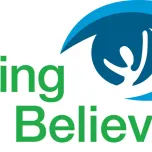CSH has been awarded a Seeing is Believing Innovation Fund grant of $50,000 to develop a tool to measure The Triple Bottom Line for Community Cataract Services worldwide. This project will be a fantastic chance to engage some of the international eye community in sustainability.
Around 36 million people in the world today are blind yet, in eight out of ten cases, blindness can be prevented or treated with proven, cost effective interventions. Seeing is Believing (SiB) is Standard Chartered’s flagship community investment programme which provides funding to address avoidable blindness and promote quality eye health. Through Seeing is Believing, Standard Chartered Bank has partnered with the International Agency for the Prevention of Blindness (IAPB) and leading international eye-care non-governmental organisations to improve access to eye care across Asia, Africa, the Middle East and South America. https://www.iapb.org/news/seeing-believing-launches-phase-3-innovation-fund
While climate change is recognised as a global priority within the UN Sustainable Development Goals, a 2016 survey of over 3500 IAPB members demonstrated a lack of awareness of sustainability. In addition, there was limited understanding of strategies to optimise social value while minimising the economic and environmental impact of accessible eye care.
This project is the first attempt to develop a globally-accessible audit tool, enabling surgeons, eye units, governments and NGO's to capture data associated with the cataract services they provide. This data will allow the surgical units to view their own service in terms of productivity, costs, carbon-emissions, and resource consumption over time, and to benchmark these against other users. The team includes eye health professionals from the UK, India and South Africa as well as sustainability experts from the US and UK.
The initial incentive for participating in the project will be to cut costs and improve productivity. But, the environmental impact data will provide a new ‘lens’ through which services can view themselves, enabling them to redesign pathways and services to ones which are more community oriented, and which minimise environmental damage.
“This exciting project will help to inform eye health practitioners, governments and NGOs how best to increase and sustain capacity and quality of services at affordable cost whilst considering the environmental impact." David Lewis OAM, CBM Focal Point for 'Environmental Sustainability' and 'Inclusion in Eye Health'.
Discussion, resources and updates on this project and wider sustainability in eye care are at the Sustainable Eye Care Network: http://networks.sustainablehealthcare.org.uk/network/eyehealth-susnet

Please log in or sign up to comment.